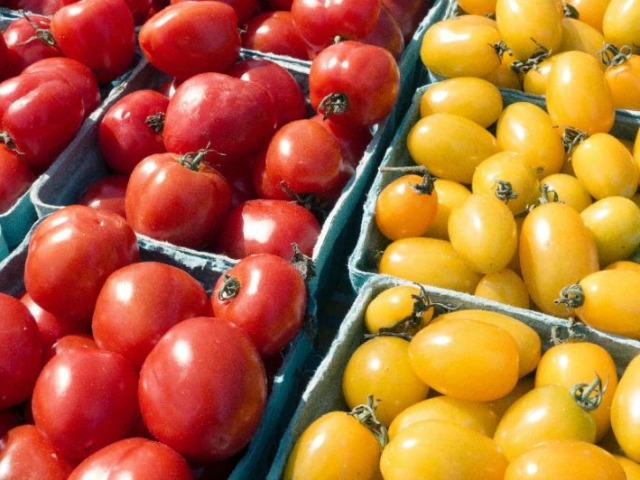A new diet for “climatarians” or “climavores” seeks to battle climate change by the types of food people eat that allegedly reduce carbon footprints.
These “climatarians” will typically avoid foods that come with plastic packaging, have been imported, or simply has a a higher “carbon footprint.” Such foods include: red meat, chocolate, avocados, sugar, and — gasp — coffee.
“The ‘eat local’ mantra is being replaced by the notion that what you eat is more important — since transportation is sometimes just a small part of your meal’s carbon footprint,” noted Axios.
Certain restaurant chains like Just Salad, Chipotle, and Panera Bread have begun to place “carbon labels” on food items that do not quite meet the green agenda. Just Salad might even go so far as to add a “climatarian” filter on its app. Paco Underhill, author of the book How We Eat, said items as simple as blueberries could have a massive carbon footprint.
“If you walk into your local Stop & Shop in the middle of January, those blueberries have been traveling for 10 days and probably started out in Ecuador,” Paco told Axios. “There’s a nascent movement, particularly anchored in younger people, that is recognizing that.”
Stop Eating Meat if You Want to Live: Schwarzenegger Pushes Vegetarian Diet to Stop Climate Change https://t.co/U7h61b2hPy
— Breitbart News (@BreitbartNews) December 9, 2015
A Fresh Market report said “Climatarians” have a wide range of flexibility as to what constitutes a truly “green” diet. “Participation can include everything from eating pasture-raised to buying more local and organic ingredients, to reduce carbon emissions from transport to eating a plant-based diet with crops that are good for soil,” it said.
The New York Times also profiled the “rise of the climatarian” in 2021. Torben Lonne, a 34-year-old scuba diver in Copenhagen, said that avocados can be “carbon-intensive.”
“Avocados that are made for export are incredibly carbon-intensive, especially when you consider farm to plate is actually several thousand kilometers away,” Lonne said. “Aside from the logistics, avocado farms have depleted many rivers and lakes, particularly in South America, in order to sustain our voracious appetite for guacamole.”
“Those who follow the diet stick with fruits and vegetables that are in season relative to their region; they avoid meat that comes from factory farms; and they seek local ingredients because those have lower carbon footprints,” noted the Times. “Many reducetarians are also climatarians: cutting back because they’re concerned about the climate crisis.”

COMMENTS
Please let us know if you're having issues with commenting.